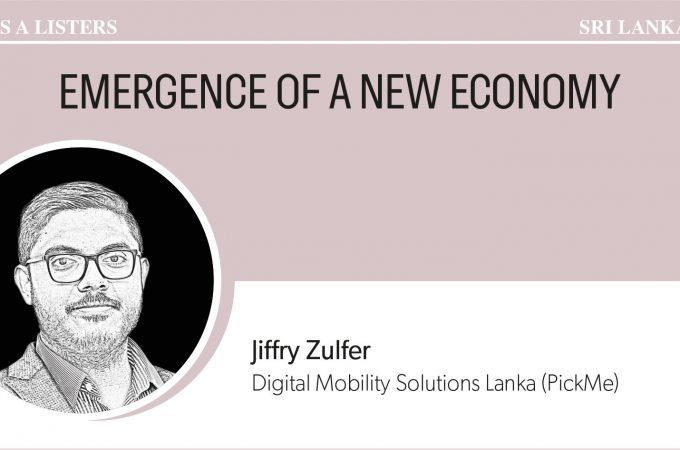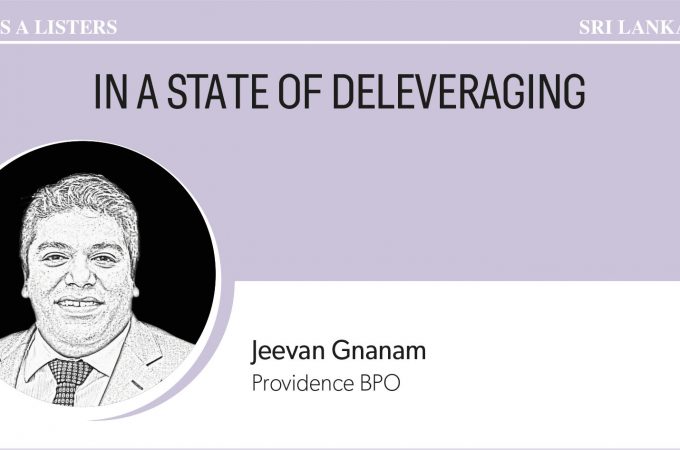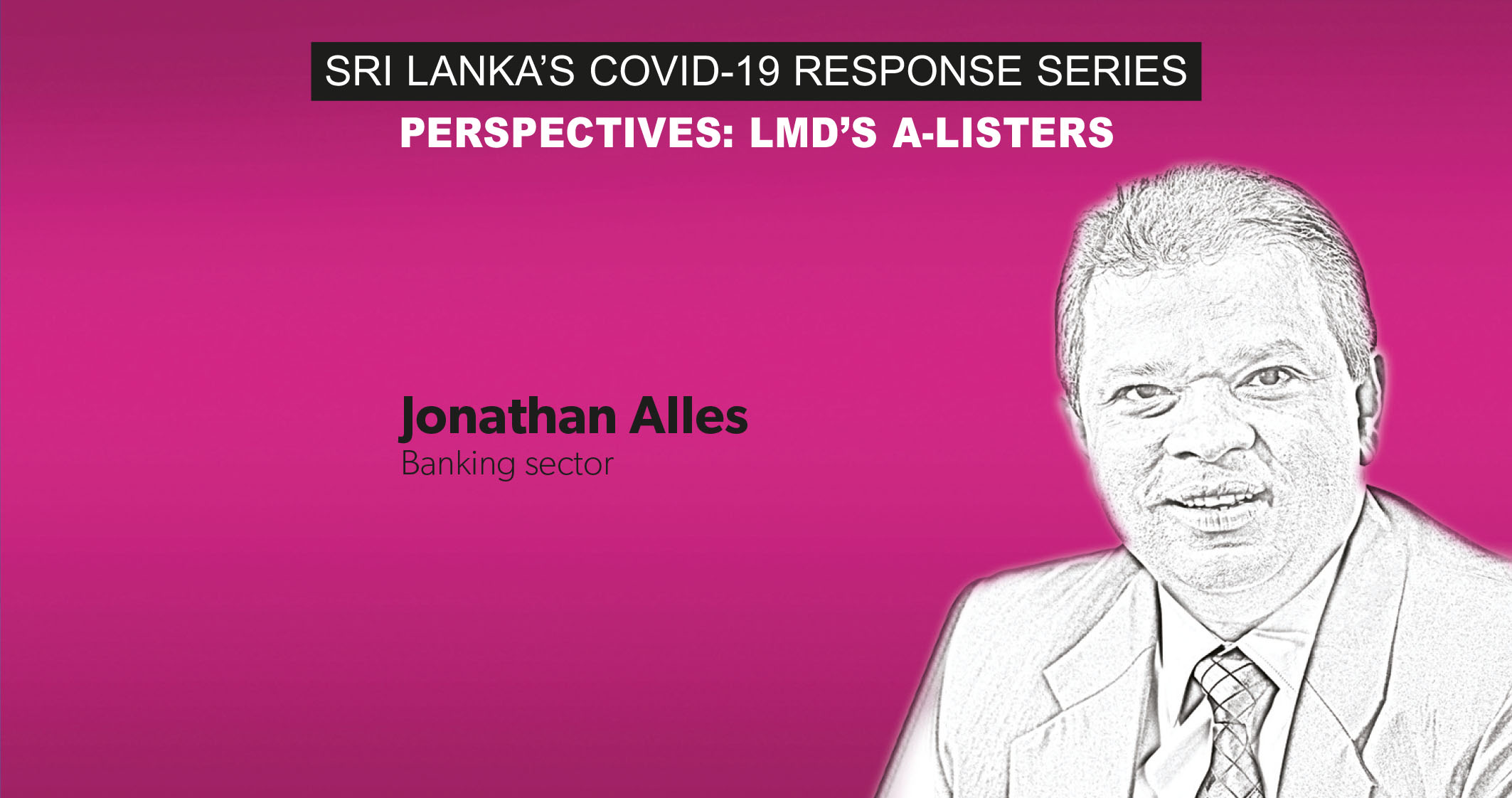CALL FOR CONCESSIONARY BORROWING
Q: How do you see the ‘new normal’ for business panning out?
A: The unprecedented outbreak of COVID-19 has forced many changes to the way in which businesses and people operate around the world. Given the magnitude of the global pandemic and length of time that will be taken to completely eradicate the virus, it is essential to formulate the ‘new normal’ of operating.
Businesses need to reassess their priorities and identify new opportunities that may arise as a result of changes in socioeconomic behaviour. For example, an intensified focus on digitalisation will be a key aspect going forward. This will enable customers to perform their transactions digitally, adhering to the physical distancing guidelines on the one hand while on the other, it will render working from home more effective and result in improving productivity.
Due to the negative impact COVID-19 would have on economies around the globe, it’s foreseen that certain jobs will perish while the others survive. However, new job opportunities in areas such as healthcare, AI and technology will be created – for example, a shift in resources towards relationship management, advisory services and digital banking in line with the changing landscape is expected in the banking sector.
Q: As for state finances, should we print money despite the obvious repercussions and/or seek more funding from global lending institutions and other channels?
A: In the past two years, the Central Bank of Sri Lanka has maintained a robust monetary policy and managed inflation. With the challenges of the COVID-19 pandemic and in the absence of options to raise the required funding urgently, the government and monetary authority may be compelled to resort to short-term methods.
Nevertheless, the focus should be on resorting to long-term concessionary borrowings from institutions such as the IMF, the Asian Development Bank (ADB) and our friendly neighbouring countries. This will enable the country to support businesses (especially SMEs) that have been seriously affected by the global pandemic. Sri Lanka’s current discussions with the World Bank, the ADB and the swap arrangement it is set to enter into with the Reserve Bank of India are steps in the right direction.
In the long term, large corporates should also focus on foreign investments – especially for affected sectors such as tourism and exports – to revive their businesses while the government focusses on reviving SMEs in this country.
Q: How do you view Sri Lanka’s COVID-19 response so far? What are the pros and cons?
A: The efforts of the government initially have been extremely proactive to contain the virus. Health authorities including all medical staff together with the armed forces have rendered an exemplary service in this regard.
However, currently we’re at a crucial juncture with the community’s ability to spread COVID-19. Effective communication especially to more vulnerable communities may have prevented this situation to a larger extent.
It is important to reopen the country considering that economic activities are at a near standstill – initially at a regional level and in clusters so that we don’t lose control, while adhering to all the guidelines provided by the health authorities in terms of physical distancing and relevant health and safety measures. This should be done with caution as the repercussions to society as a result would be far greater than that of an extended lockdown.
ABOUT LMD’S A LISTERS
BOOST TO REAL ESTATE INVESTMENT
 Q: What are your expectations of the business environment in the next 12 months or so? A: With the reduction in interest rates and increase in money circulation, people have a greater tendency to invest in real estate over the money market amidst the pandemic. We have seen similar patterns even in developed markets such…
Q: What are your expectations of the business environment in the next 12 months or so? A: With the reduction in interest rates and increase in money circulation, people have a greater tendency to invest in real estate over the money market amidst the pandemic. We have seen similar patterns even in developed markets such…
EMERGENCE OF A NEW ECONOMY
 Q: How did the pandemic necessitate a digital economy? A: Countries were not prepared for the COVID-19 pandemic’s impact on the economy and people, but it has resulted in the emergence of a new economy and way of life. It is technology, and the spirit of humans to survive and push past boundaries that have…
Q: How did the pandemic necessitate a digital economy? A: Countries were not prepared for the COVID-19 pandemic’s impact on the economy and people, but it has resulted in the emergence of a new economy and way of life. It is technology, and the spirit of humans to survive and push past boundaries that have…
PRIORITISING CRUCIAL SECTORS
 Q: What are your expectations of the business environment in the next 12 months or so? A: I believe that business is not likely to pick up until at least mid-next year for the hospitality sector. Business was nonexistent and as a measure to prevent exorbitant losses, we converted our hotel into a quarantine centre…
Q: What are your expectations of the business environment in the next 12 months or so? A: I believe that business is not likely to pick up until at least mid-next year for the hospitality sector. Business was nonexistent and as a measure to prevent exorbitant losses, we converted our hotel into a quarantine centre…
A POSITIVE AND FLEXIBLE PATHWAY
RELIABLE PARTNERS IN A CRISIS
 Q: In brief, what are the main challenges confronting corporates at this time? A: I think corporates today are besieged with a plethora of problems caused by the prevailing situation. First and foremost is the challenge in keeping their workers safe from COVID-19, and flowing from that is the inability to keep production cycles running…
Q: In brief, what are the main challenges confronting corporates at this time? A: I think corporates today are besieged with a plethora of problems caused by the prevailing situation. First and foremost is the challenge in keeping their workers safe from COVID-19, and flowing from that is the inability to keep production cycles running…
IN A STATE OF DELEVERAGING
 Q: How do you perceive the economic climate at present? A: I would like to really think about the state that the country’s economy is in. Our debt repayments are much higher than our income and this puts Sri Lanka in a state of deleveraging. This recently manifested itself in a 14.2 percent increase in…
Q: How do you perceive the economic climate at present? A: I would like to really think about the state that the country’s economy is in. Our debt repayments are much higher than our income and this puts Sri Lanka in a state of deleveraging. This recently manifested itself in a 14.2 percent increase in…
EVER EVOLVING EXPECTATIONS
 Q: What modern-day challenges do businesses face? A: Information overload – in the new world we live in, there’s never a lack of information. About 2.5 quintillion data bytes are added every day; more data is created in a single day than the combined amount generated over 99 percent of human history. Previous generations of…
Q: What modern-day challenges do businesses face? A: Information overload – in the new world we live in, there’s never a lack of information. About 2.5 quintillion data bytes are added every day; more data is created in a single day than the combined amount generated over 99 percent of human history. Previous generations of…
EXPANDING CREDIT FACILITIES
 Q: What is the bank’s corporate strategy for 2021/22? A: DFCC Bank’s 2021/22 plan is based on our five year strategy for 2020-2025 with the aim of making it one of the most customer centric and digitally enabled banks by 2025. Our lending plans will align with the government’s budget proposals to facilitate the growth…
Q: What is the bank’s corporate strategy for 2021/22? A: DFCC Bank’s 2021/22 plan is based on our five year strategy for 2020-2025 with the aim of making it one of the most customer centric and digitally enabled banks by 2025. Our lending plans will align with the government’s budget proposals to facilitate the growth…
REMAINING IN THE SPOTLIGHT
 Q: What are Sri Lanka Tourism Development Authority’s (SLTDA) priorities for 2021/22? A: The global tourism industry will continue to experience a huge shift in the way of doing business. Our innovative bio-bubble concept launch in January was recognised at ITB Berlin. We hope this will boost traveller confidence. Therapeutic destinations and experiential travelling are…
Q: What are Sri Lanka Tourism Development Authority’s (SLTDA) priorities for 2021/22? A: The global tourism industry will continue to experience a huge shift in the way of doing business. Our innovative bio-bubble concept launch in January was recognised at ITB Berlin. We hope this will boost traveller confidence. Therapeutic destinations and experiential travelling are…






